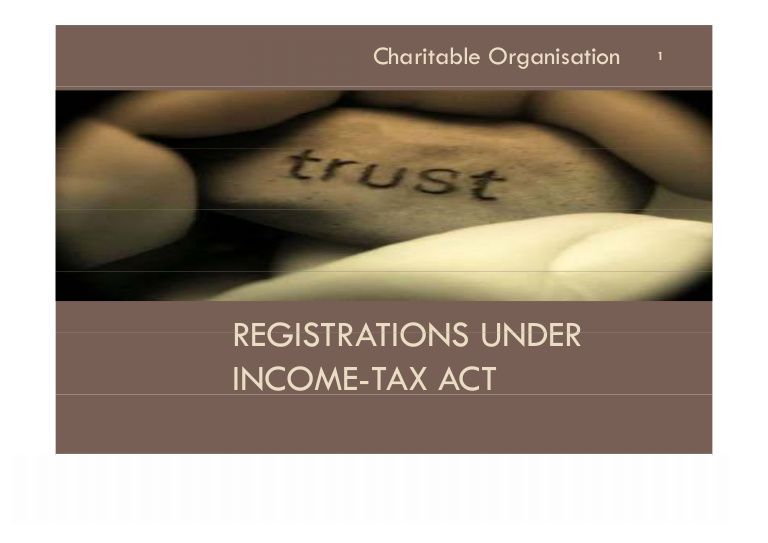Application u/s 80G (5) (vi) for approval of the registration- The Case of Gyaan Vikas Foundation Siliguri Vs C.I.T (ITAT Kolkata)

Application u/s 80G (5) (vi) for approval of the registration
The Assessee here in the Case of Gyaan Vikas Foundation Siliguri Vs C.I.T (ITAT Kolkata) is a trust which was executed at Siliguri on 27th February 2015 by Shri Balwant Rai Jain. In this case, the Assessee had applied u/s 12A of the Income Tax Act for its registration to be granted. The assessee also applied u/s 80G (5) (vi) for approval of the registration on 9th June 2015.
The application was filed in the office of the CIT (E) on 16th July 2015. Now, according to the law, the Commissioner has to do some inquiry that would satisfy him about the credibility of the trust and its aim for a charitable purpose. If everything is right, then he is allowed to grant registration. But in this case, it was found that the organization in question had a vocational training to the students in garment making and designing and took fees for the same. But according to section 2 (15) of the Income tax act, this cannot be declared as a charitable work.

Changes in Income Tax Act mandated that General Public Utility would not be considered a Charitable Purpose, hence registration u/s 80G (5) (vi) would not be allowed
In the Finance Act, 2008, the section 2 (15) of the Act was amended. Previously it said that charitable purpose meant that it gave relief to the poor in the form of medical relief, education and any other form of public utility. But with effect from 1st April 2009, the law said the same things as above but only one thing changed and it was that any other general public utility would not be considered as a charitable purpose if any activity in the form of business, trade or commerce is involved.
Verdict of the CIT (E)- Trust not charitable as not doing any charitable activity but engaged in business
The CIT (E) concluded its statement by saying that the trust is not genuine. It gave the reason that the trust took fees from the students to give them training in garment making and designing. And thus it stated that the trust is not doing any charitable activity and declined its registration and approval.
Verdict of the Tribunal- Imparting knowledge does not make an entity lose its charitable nature
The Id. Counsel referred to the case of India Trade Promotion Organization Vs DGIT (Exemption) and exclaimed that taking a fee in imparting knowledge to the people does not exclude a trust being a charitable one. It also stated that if the sole purpose of the trust is not business, commerce or trade then taking a fee does not make it lose its charitable nature. Thus, it means that the main aim of the trust should not be making profits and doing business rather it must concentrate on charity.
The Id. Counsel also stated that the present case applied to the one mentioned above because of the income tax reports which showed the audited income and expenditure. The report stated that the income of the assessee on the basis of the fees it received from all its students amounted to Rs 28, 435. Thus the claims which had been registered before saying that the trust is not a charitable one stands invalid.
Since nothing was found, that showed that the assessee’s main motive was to make profits, so his registration was granted u/s 12AA and its approval was also granted u/s 80G(5)(vi) of the Act.


 ITAT Amritsar: No Section 269SS Violation for One-Time Cash Payment Before Sub-Registrar
ITAT Amritsar: No Section 269SS Violation for One-Time Cash Payment Before Sub-Registrar  Tax Officials Unleash Digital Dragnet: How New Raid Powers Redefine Privacy, Property Rights in India and likely to Fuel Corruption
Tax Officials Unleash Digital Dragnet: How New Raid Powers Redefine Privacy, Property Rights in India and likely to Fuel Corruption  Income Tax Department Rewards for Reporting Tax Evasion: A Comprehensive Guide
Income Tax Department Rewards for Reporting Tax Evasion: A Comprehensive Guide  Forfeiture of Gratuity by Employer- What are the Remedies for an employee- Can employer be challenged?
Forfeiture of Gratuity by Employer- What are the Remedies for an employee- Can employer be challenged?  Employer can forfeit gratuity of an employee in case of moral turpitude
Employer can forfeit gratuity of an employee in case of moral turpitude  Diving Deeper: The Impact of the New Tax Bill on Dairy and Farming Income
Diving Deeper: The Impact of the New Tax Bill on Dairy and Farming Income